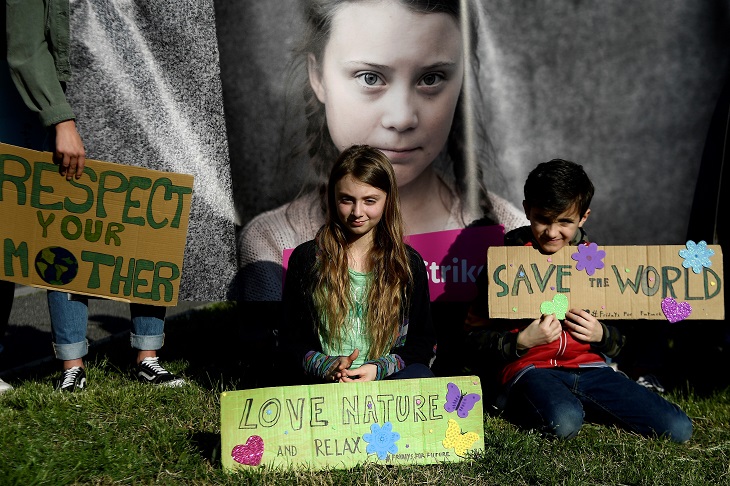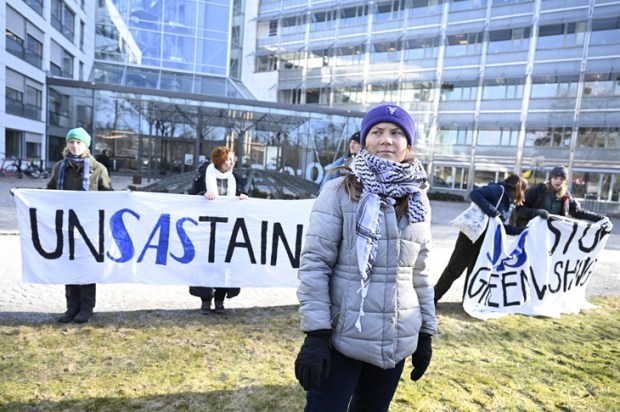One of the many perplexities of life is how some new scientific discoveries and insights quickly find their way into popular culture, yet others go largely unnoticed.
Freud’s theories about the human psyche rapidly entered public awareness, as did Einstein’s E= MC2, as often do the latest scientific claims on health or diet. On the other hand, the public and political debate seems oblivious to the many new findings and insights over recent decades from the intersection of evolutionary science and psychology.
Yet these insights have dramatic implications for our approach to public policy and debate, as just three examples will show.
Firstly, humans have been shown generally to form their views on normative issues in emotionally driven snap judgments, shaped by evolution and culture. People then adhere dogmatically to those views while coming up with conscious rationalisations to justify them. We tend to do this because evolutionary survival required our ancestors to make a multitude of behavioural judgments in everyday life with far greater speed and less effort than conscious deliberation would allow.
Secondly, humans are deeply tribal in their behaviour, supportive of fellow tribe members yet readily hostile to outsiders. We seek to feel part of a group in many different facets of our lives, be it around sporting teams, brand loyalties, states or nations or, increasingly, political alignments. Our ancestors also needed to be part of a tribe or troop and to defend it, in order to survive.
Thirdly, humans have deeply ingrained patterns of behaviour that we adhere to and expect of others. These patterns, often regarded as ‘human nature’, are a mix shaped both by evolution and by inherited cultural norms developed and transmitted over generations. This mix is difficult to change quickly in fundamental respects and can have unexpected and deleterious consequences when rapid change is imposed. This is a key reason why intellectually constructed political utopias usually fail – either they are incompatible with evolved human nature and/or their proponents haven’t mapped a viable transition path from current behaviours.
At one level, these insights simply confirm what unfortunately has become clear to many from bitter experience already, namely that rational political argument often fails to persuade, and that the dark arts of political manipulation can have a far higher political payoff than well-researched and carefully argued policy formulation.
However, rather than go over to the dark side, well-intentioned political and public policy actors can and should use the insights of evolutionary psychology to gain a better understanding both of themselves and of their fellow human beings. In doing so, they will be able to better deploy conscious reasoning to validate or override their own snap judgments, to better assess the likely benefits or detriments of particular policy initiatives, and to better understand how their political and policy propositions are likely to be received by others.
The current public debate about human-induced climate change is a stark illustration of all this. It’s easy to conclude that, for some, the climate change movement fulfils an instinctive longing for a religious substitute or for purity from contamination. It’s easy to deplore the distortions of scientific research caused by the pressures for conformity and the quest for ‘climate action’ at all costs. It’s easy to decry the virtue signalling and empty gestures, and the expensive and poorly considered measures that governments seem prone to rush into so they can be seen to be doing something.
However, some of the response to climate change concerns seems itself driven by emotion more than by reason, and especially to be driven by tribalism. It would be unbearably humiliating if those insufferable, Woke, politically correct leftists were actually right about something. Surely it’s simply another of their periodic doomsday obsessions, just like the Club of Rome global starvation scare or the 1970s global cooling scare? We’ve caught them rigging the data in the past, and they must be doing the same now, even if we can’t figure out how. They attack and denigrate us personally, so we must do the same to them. We must unite together and not concede an inch.
Instead of all this, if we want to get the best outcome for humanity on the climate change issue, we need to put aside both the quasi-religious zealotry and the tribalism.
The evolutionary record shows that, while fundamental human behaviours change slowly, humans can adapt rapidly to changes in the world around them and to changes in their knowledge of the world. Humanity’s discovery over recent centuries of the potential benefits of technological invention, and the development of the scientific method that underpins it, have provided a rapid and massive improvement in human wellbeing unprecedented in evolutionary history.
Even though it is now under attack by some, we should defend the scientific method and apply it rigorously to the issue of climate change – to gather and assess the evidence without fear or favour, including its uncertainties and risks. Sceptics have been urged in the past to accept the truth even if inconvenient. Zealots and sceptics alike must also avoid propagating untruth, even if convenient.
One of the many harmful consequences of the tribalism that has developed over climate change is that the devising of solutions has been dominated by the passionate. By definition, the passionate see climate change as the overarching imperative of the era, and thus understandably give priority to solving that perceived problem and to be less mindful of potentially adverse consequences of their solutions.
As well, climate change tribalism has meant that most of the solutions have tended to come from the left of politics, and thus to be based on extensive government involvement in both spending and prescriptive regulation.
An invaluable contribution that could be made by more of those who are sceptical of some or all climate change concerns is to take part in a ‘what if’ exercise. Assume – if you like, only for the sake of the exercise – that human CO2 and other emissions are in fact causing an unacceptable level of climate change. What then should be done about it? What level of emissions reductions are required and how should they be achieved? What are the trade-offs between using and foregoing resources to achieve emissions reductions compared with other desirable uses for those resources? Is there a ‘light touch’ regulatory framework that will maximise the likelihood of free enterprise human ingenuity developing new or improved technologies that will allow the problem to be solved for good, as has been achieved previously for so many pollution problems?
Further, if the best available climate change solution involves emission reductions that require a burden of cost or reduction in living standards, who should bear what amounts of that burden? What principles should apply in allocating the burden between nations and between individuals within nations? Instead of the current ‘moral suasion’ approach of volunteered Nationally Determined Contributions, should a maximum amount of permitted per capita emissions be agreed upon, to be the same for everyone worldwide?
The public conversation on climate change needs the contributions of more ‘sceptics’ on these matters, even if only on a ‘what if’ basis, to develop better policy outcomes, whether that be to solve a real and dangerous global problem or to achieve a less wasteful solution to an imagined or overstated problem, as well as to help bring about a more informed and temperate public perspective.
As evolutionary psychology has discovered, humans are obsessively social in observing, talking about, and responding to each other’s behaviour, and one of the important ways in which individuals can best come to recognise and correct the flaws of their emotional snap judgments – far more readily than through their own conscious reflections alone – is through receiving and taking on board the feedback that others give them in respectful dialogue.
It’s often not an easy task to take on new and demanding learnings and to change the way in which we approach political issues and debate. However, if the point of our interest in politics and public policy is to help achieve a better world, it is something we need to do, and the climate change issue is a good place to start.
Robert Clark is a former Victorian MP and Minister.
Got something to add? Join the discussion and comment below.
Get 10 issues for just $10
Subscribe to The Spectator Australia today for the next 10 magazine issues, plus full online access, for just $10.


























Comments
Don't miss out
Join the conversation with other Spectator Australia readers. Subscribe to leave a comment.
SUBSCRIBEAlready a subscriber? Log in